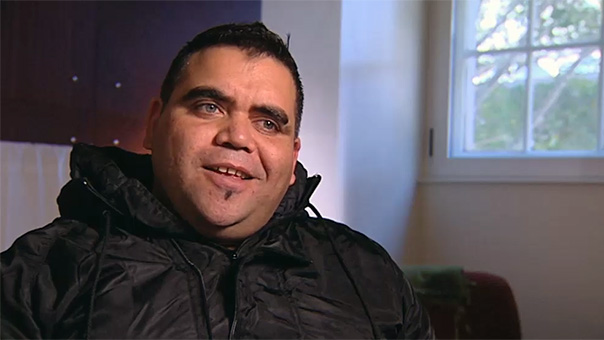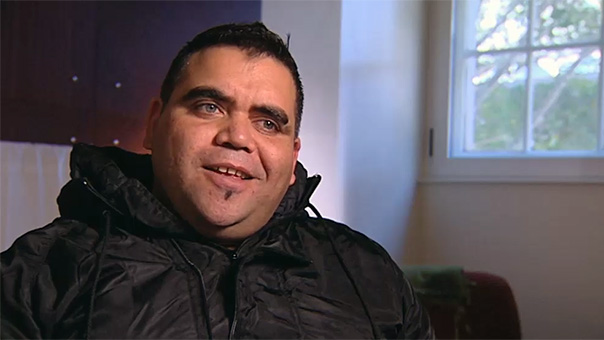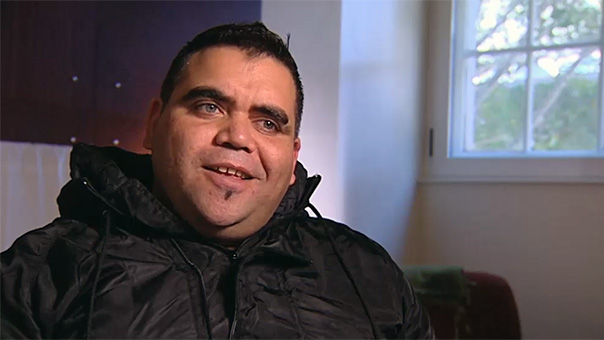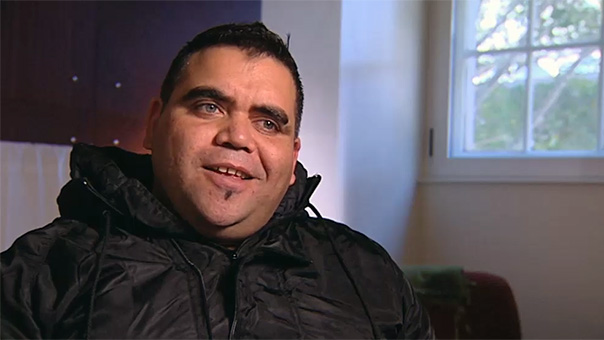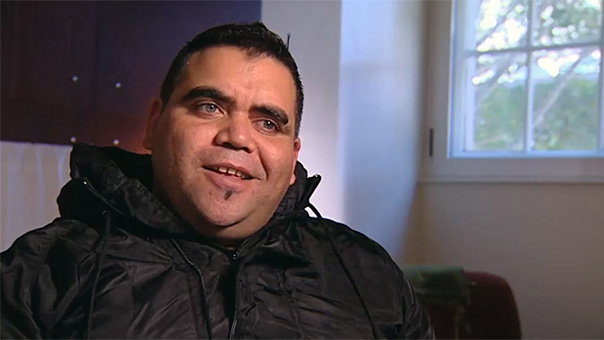5. Poetry structure and form
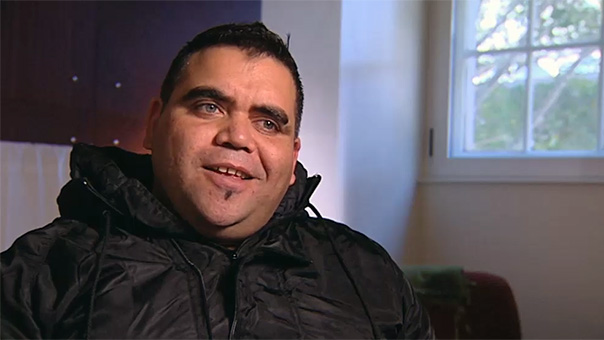
Viewing guide
Write a list of the rules you follow when you are writing your poems.
-
What does Samuel think of the notion of indigenous people as natural storytellers?
-
What is Samuel’s golden rule of poetry?
-
Explain how Samuel's approach to structure helps to get his message across?
-
Describe some of the advantages to writing in the poetic style that Samuel uses?
-
Analyse the ways that Samuel uses storytelling and imagery in his poem ‘Booranga Wire Songs’.
-
Read these ‘7 fundamental rules of poetry’ and compare them to the rules you wrote at the beginning of the lesson.
-
Read this article on ‘Breaking grammar rules in poetry writing’.
-
Based on this reading, explain which style appeals to you more, do you like structure and form to help you shape your thoughts or would you rather they flowed freely over the page?
-
Re-draft your poem from the previous lesson, either by changing the structure from one form to another, or by removing the form and re-shaping the words into a rule free form.
-
Analyse how changing the form changes the way the ideas are expressed.
This exercise is designed to get students thinking about the conventions of writing poetry. Depending on the skill and experience of the class it could be valuable to precede this lesson with one focused solely on the different structures of poetry such as rhyme, rhythm, meter and sound. For a breakdown of these elements revisit the Lexiconic page – ‘Elements of poetry’.
Syllabus outcomes
-
effectively uses and critically assesses a wide range of processes, skills, strategies and knowledge for responding to and composing a wide range of texts in different media and technologies (EN5-2A)
-
selects and uses language forms, features and structures of texts appropriate to a range of purposes, audiences and contexts, describing and explaining their effects on meaning (EN5-3B)
-
effectively transfers knowledge, skills and understanding of language concepts into new and different contexts (EN5-4B)
-
questions, challenges and evaluates cultural assumptions in texts and their effects on meaning (EN5-8D)
-
explains adaptations in, and the changing nature of, Aboriginal cultural expression across time and location (AS5.4)
-
assesses the significance of contributions of Aboriginal Peoples to Australian society (AS5.7)
-
analyses the interaction of the wider Australian community with Aboriginal Peoples and cultures (AS5.8).
Interviewer: Samuel, as an Aboriginal person - and as you are aware as an Aboriginal person - traditionally we have an oral history. How does that reflect in your poetry?
Samuel Wagan Watson: Yeah, definitely. I do have some conflict though, that you know you get that old anthropological sort of term, that, you know because you're a black fella you're a natural storyteller. I disagree with that a lot. Especially our people who've sort of been robbed of their childhoods or spent their entire life in the correctional system, you haven't been given that nurturing to be a storyteller or you may not even know what your real voice is. I was lucky to have that childhood and encouraged to have my own voice. So, yeah.
Interviewer: What attention do you pay to conventional poetry structures and forms?
Samuel: The wonderful thing about writing, I think the one golden rule you have to live by is that there are no rules. I don't understand conventional structure, I think that's why I was such a terrible student because I couldn't see the genius behind the lines rhyming. And I really, when I'm approaching a concept, I really want the reader to go; 'Ohhh'. Suddenly within two sentences they're looking into a world they've never really pondered or ventured into.
